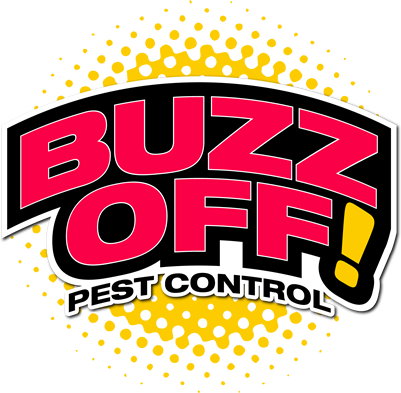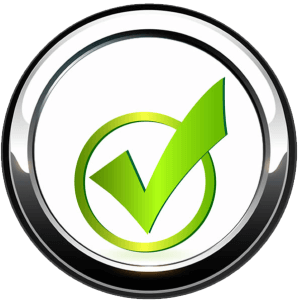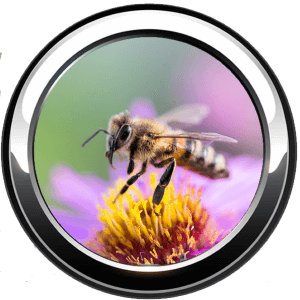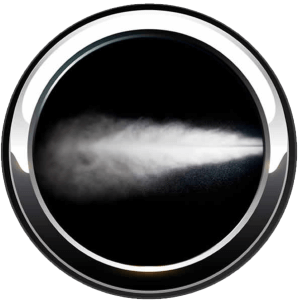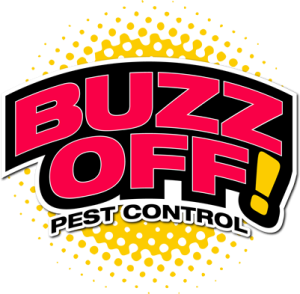Frequently Asked Questions
You have questions, and we have the answers!
If you have any other questions that aren’t listed here, please contact us and we’ll be happy to answer them!
How is Buzz Off’s approach to pest control different?
Buzz Off Mosquito & Tick Control can help make mosquito season more bearable with our comprehensive insect control services.
We understand that mosquito bites are more than just a nuisance – they can be dangerous as well. That is why BUZZ OFF uses the most advanced mosquito control methods available. Our mosquito control technicians will assess your property and develop a custom treatment plan tailored to your needs. We take mosquito and tick infestations seriously, and our team will do everything we can to keep your family safe from these pesky insects.
We utilize a mixture of all natural, hybrid and integrated pest management (IPM) techniques to effectively treat our. Our philosophy is not to simply coat your backyard with dangerous chemicals, nor offer a one size fits all solution, aka “spray & pray” to treat your property.
Our service begins with an inspection to find out where your problem spots are. Then we treat your perimeter of your property (where the skeeters and ticks live) with our solutions. We use great care to only use solutions that are labeled to have minimal impact to pets, humans or pollinators except when absolutely necessary. In addition to our regular services, at certain times of year we utilize mosquito selective insect growth regulators to keep infestations from coming back.
This multifaceted approach allows us to provide our customers with a dramatic decrease in pest populations while protecting the surrounding environment.
Are your products safe for me, my kids and my pets?
Most of our products are labeled “safe when dry”, which means exactly what it sounds like. In pest control, nationwide, the number one thing to remember is “The label is the law”
By law, a pesticide applicator cannot use the words “safe”, “harmless”, “(insert organism here)-friendly” etc. If someone is using that terminology to describe their products, you should definitely take caution when hiring them. What we can say is that we have selected targeted, effective products that are known (as per the label) to have minimal effects on people, pets, beneficial insects and the environment.
Buzz Off doesn’t carry restricted use pesticides, organophosphates or chlorinated hydrocarbons… aka the really nasty stuff. Additionally, we are out there applying these products on a daily basis and don’t want ourselves or our employees exposed to anything that could harm us or them.
Most of our recipes have a US EPA 25(B) Exempt – Minimum Risk Pesticide base. These are typically organic oils, such as cedar oil, lemongrass oil etc. These methods are actually quite effective against mosquitoes and ticks when applied properly. Depending on the time of year, severity of infestation and a few other factors we may add other compounds to our treatment sprays to ensure maximum effectiveness with minimum risk.
By NJ DEP law, the customer ALWAYS has a right to know what was used, where it was used, and when it was used upon request. We adhere to the law to the letter, and are required to keep detailed records of every treatment for a minimum of 3 years.
Additionally, we provide every customer with a mandatory Consumer Information Notice which will list any and all pesticides that could be used in the course of any given treatment program.
If you ever have any questions, you can always give us a call.
What about bees and other pollinators?
Clicking this question shows you care, and so do we!
Bees and other pollinators are our friends, and they’ve been having a rough time lately. With the overuse of neonicotinoids and other harmful pesticides over the last century or so, our bee populations have been dwindling.
Here is our stance on measures we take to protect pollinators during our process:
1. Proper Pesticide Selection – We strive to use pesticides that are not known to have dangerous effects on bees, or have a minimal risk to pollinators when applied properly.
2. Proper Equipment Selection – This really makes a big difference. The entire goal here is to stay “on target”, and certain application methods are more suited to that task than others. A very popular method used in mosquito control applications is airblast / backpack foggers. These machines create a very fine mist that has a tendency to “drift” off target, which could prove hazardous to foraging bees.
At Buzz Off, we typically use non-airblast sprayers with a much larger droplet size to make sure that “drift” doesn’t become a factor. Although it may take us a little longer with this method, it is the responsible thing to do for our friends.
3. Staying On Target – Our mosquito and tick treatment programs are typically perimeter treatments. We specifically treat brush, bushes and trees on the perimeter and interior of your property. This is where the bad buggers hang out and rest during the day.
Contrary to popular belief, you do not need to spray an entire lawn willy-nilly to get great results. In fact, if someone does this, they are spraying pesticides right on the pollinators, which is a lose-lose for all involved.
4. Site Selection – We do not treat flowering plants, food plants, lawns or any other pollinator foraging areas. We stick to the places where the baddies are.
What about fish and other aquatic life?
The EPA’s Clean Water Act prohibits certain pesticides from being applied to or near WOTUS (Waters of the United States). As always, we follow the rule of law here.
When you become a Buzz Off customer, we automatically check to see where your nearest waterway is. If it is too close for comfort, we will adjust our treatment plan to keep our products out of everyone’s waterways.
Fun Fact: Certain species of fish do an amazing job of keeping larval mosquito populations at bay. In Gambusia Affinis, aka the Western Mosquitofish has been introduced into many waterways by federal and state wildlife agencies to do this specific job!
What about my flowers and food plants?
Who would ever want pesticides sprayed on their food? Not me, that’s for sure.
We do not treat flowering plants, food plants, lawns or any other pollinator foraging areas. We stick to the places where the baddies are.
What is integrated pest management?
Integrated Pest Management (IPM) is a way to manage pests using common sense and current information. IPM programs use information about how pests grow and interact with the environment.
This information helps us choose the best pest control methods. The goal of IPM is to use the most economical means while causing the least possible hazard to people, property, and the environment. IPM can be used in agricultural and non-agricultural settings, such as homes, gardens, and workplaces. IPM includes using pesticides when needed.
When utilized properly, Integrated Pest Management programs are HIGHLY effective and can actually cut down the need to use pesticides over time, which helps both the environment and our customer’s wallets!
Are you licensed and insured?
100%!
A pesticide applicator in New Jersey is required to be both licensed and insured in the categories of pest control that they practice.
Here at Buzz Off, our RCA (Responsible Certified Applicator) is certified in NJ DEP Pesticide Control Program categories 7A – Household and Structural and 8B – Mosquito Control.
Our operators are required to undergo a state training course and have 40 hours of on the job experience before they can apply any pesticides of any kind. At this point, they can work under the supervision of the RCA, following all rules and regulations that apply.
We are fully insured, carry excess chemical liability and drive lettered vehicles with commercial insurance and plates on them. If you need a copy of our general liability policy, please scroll to the bottom of this screen and click “COI Request”, and our certificate will automatically be provided to you.
How can I tell if a pesticide applicator business is licensed and insured?
This is a fantastic question!
There are a few ways to tell if a pesticide applicator is legit.
- Look at the side of their service vehicle. All pesticide applicator service vehicles in New Jersey are required to have their pesticide applicator license number on two sides of the vehicle. These numbers are to be 3 inches tall, and contrasting colors to the vehicle itself.
- Use the NJ Department of Environmental Protection’s Pesticide Control Program Dataminer, located HERE. This website will have the data of all licensed pesticide businesses and applicators in the state.
Simply click “Search By Category”, then choose “Pesticide Control Program”, and then you can search for businesses or “Applicator business by business name”, “Applicator business by license”, “Applicator businesses by types of pest control performed” and a plethora of other ways.
If an applicator or business is not listed there, then they probably aren’t legitimate.
How effective is your treatment?
We tell our customers that they can expect a 50+% reduction in the pests after the first treatment if we are doing it midsummer. This number should increase dramatically when done on a scheduled routine to about 80-90%. Getting an early jump on the season in April or May makes the treatments even more effective.
There’s never a guarantee of complete eradication as mosquitoes can fly in from other areas aside from your treated property, but you will definitely notice that being outdoors in the evening is much more pleasant!
How often do you come?
When it comes to frequency of service, we recommend every two to three weeks from mid April until October for mosquitoes, and mid April through November for ticks, depending on how early the first freeze comes.
Ticks LOVE leaf piles, and although their numbers dwindle when it starts getting colder, they seem more brash when the fall starts.
You will be able to choose the package which suits you best, every 2-3 weeks, and if you don’t know which one is best for you, we can help you out and/or change up your schedule to make it work out in a way that is best for you!
How will I know if you have been here?
That’s a no brainer… you won’t get dive bombed my thirsty little vampires when sitting out on your patio 🙂
Also, we are required by law to leave a “pesticide treated area” flag at the entrance to your property. We will usually put that at the end of your driveway. We will also leave a small lawn sign with our company info on it, and a door hanger to let you know when we were there, and when we expect the treatment to be dry.
Do your treatments work on gnats/no-see-ums/biting midges?
Although there can be some reduction in the populations of these pests, they are a bit trickier to control because of their flight altitudes and habitats. Their habitats tend to be similar to pollinators, which we do everything in our power to protect. They also tend to fly much higher than where our mosquito and tick target areas are.
Do your treatments work on Spotted Lanternflies?
Ah, the dreaded Spotted Lantern Fly. Unfortunately, it seems like these things aren’t going anywhere anytime soon.
Mosquito and tick treatments do have a negligible effect on spotted lanternfly populations, if applied correctly. However, to effectively keep your trees and plants safe from these new pests, there is a separate treatment and method required.
Rather than a perimeter treatment, we would treat the trunks of your trees with EPA exempt, natural pesticides. This treatment is incredibly effective against lanternflies, and usually only needs to be done 3 times, 3 weeks apart once they appear in their nymph stages.
What chemicals do you use?
Most of our recipes have a US EPA 25(B) Exempt – Minimum Risk Pesticide base. These are typically organic oils, such as cedar oil, lemongrass oil etc. These methods are actually quite effective against mosquitoes and ticks when applied properly. Depending on the time of year, severity of infestation and a few other factors we may add other compounds to our treatment sprays to ensure maximum effectiveness with minimum risk.
Buzz Off doesn’t carry restricted use pesticides, organophosphates or chlorinated hydrocarbons… aka the really nasty stuff. Additionally, we are out there applying these products on a daily basis and don’t want ourselves or our employees exposed to anything that could harm us or them.
By NJ DEP law, the customer ALWAYS has a right to know what was used, where it was used, and when it was used upon request. We adhere to the law to the letter, and are required to keep detailed records of every treatment for a minimum of 3 years.
Additionally, we provide every customer with a mandatory Consumer Information Notice which will list any and all pesticides that could be used in the course of any given treatment program.
If you ever have any questions, you can always give us a call.
What are my payment options?
We accept all major credit and debit cards via our website or over the phone (whatever works best for you). If paying for a full season in advance, we can accept cash and checks.
You will have a choice of either paying per-treatment, which is automatically charged to your payment method when the job is finished, or paying for a full season in advance, which will save you 10% of the total cost over the season.
Special event and one-off treatments require prior payment before we start the job.
Do I get a discount for paying cash?
Unfortunately, no.
We run everything through our books and bank accounts. As much as we’d like to be sitting on a mountain of unreported cash at the end of the season, the risks outweigh the benefits.
What if the mosquitos are still around after you treat the area?
Our programs are reduction programs, intended to keep population levels manageable. There is no pest control company that can guarantee total elimination of any pest, but we aim for an 80-90+% reduction in the targeted pest population with our programs.
Sometimes, things just don’t want to cooperate with us though. Whether its a severe storm that leaves ponds in your yard, super hot and wet weather, or any other numerous factors, pests can continue pestering you.
If this is the case, Buzz Off will come back and re-treat your property, free of charge. Just give us a call!
How long is your season?
Our main season begins in April, when we do pre-treatments for tick nymphs and seed ticks, as well as overwintering mosquito larvae and adults. These pre-treatments make a big difference by reducing the local populations before they even get started.
By May, the season is in full swing, and the bulk of the season happens from May until September.
By the end of September / early to mid October, the mosquito population typically starts dying off. Of course, this can be earlier or later depending on the weather. At this point we continue treating for mosquitoes, but our focus becomes ticks.
Ticks LOVE leaf piles. Female ticks are exceptionally bloodthirsty at this time, so we continue treating for them until the end of November, at which point local populations should be reduced to very low levels.
Late year treatments are a very useful tool for keeping spring populations down, so we definitely recommend seeing it through until then.
Ticks are a year round problem now in New Jersey, and will resume “questing”, aka foraging for a blood meal when the temperature in their location is above 40 degrees fahrenheit. For example – if it is 35 degrees out, but the tick is in a patch of grass next to a nice warm sidewalk, they are going to be looking for a meal. Pair this with the fact that ticks have a 2 year life cycle and you have a recipe for possible year round exposure.
We suggest a treatment mid-winter if the winter is warm. Whether or not you would like to take advantage of this is entirely up to you.
Buzz Off also can help keep winter pests out of your house with our Home Perimeter Programs! Once the weather gets a little colder, we recommend these services to keep many pests from entering, including ants, stink bugs, lady bugs, spiders and more.
Give us a call to find out more about these winter services!
What do you do in the winter / "off" season?
Buzz Off also can help keep winter pests out of your house with our Home Perimeter Programs! Once the weather gets a little colder, we recommend these services to keep many pests from entering, including ants, stink bugs, lady bugs, spiders and more.
Give us a call to find out more about these winter services!
Can I cancel at any time?
Although we would hate to see you go, you may do so at any time. No hard feelings!
If you are on a Pay As You Go plan, we will simply stop service and any future payments.
If you are on a Pay In Advance Plan, we will refund the balance of any unfulfilled treatments.
Are your technicians licensed?
At Buzz Off, any person applying pesticides must have a NJ DEP-PCP Pesticide Operator License in the category that they are applying pesticides in.
The only exception is if a person is in their mandatory State mandated training period to receive that license. At this point, the trainee can work under the direct supervision of a Certified Applicator or a RCA (Responsible Certified Applicator) while training, but never on their own or under the supervision of regular operator.
What if I am outside of your service area?
In order to keep our routes tight and our prices fair, we unfortunately cannot travel outside of our regular service area for ongoing treatment plans. If by chance you are right on the border of one of our serviced towns, give us a call!
That being said, we do have plans to expand pretty quickly over the next few years! Check back or drop us a contact form and we will keep you informed when this happens!
If you need a special event / one time treatment and are outside of our service area, please give us a call.
Can I franchise a Buzz Off location?
Unfortunately, no.
We are flattered, but we are committed to our employees and have a firm policy of hiring from within, so any future locations will be employee owned.
